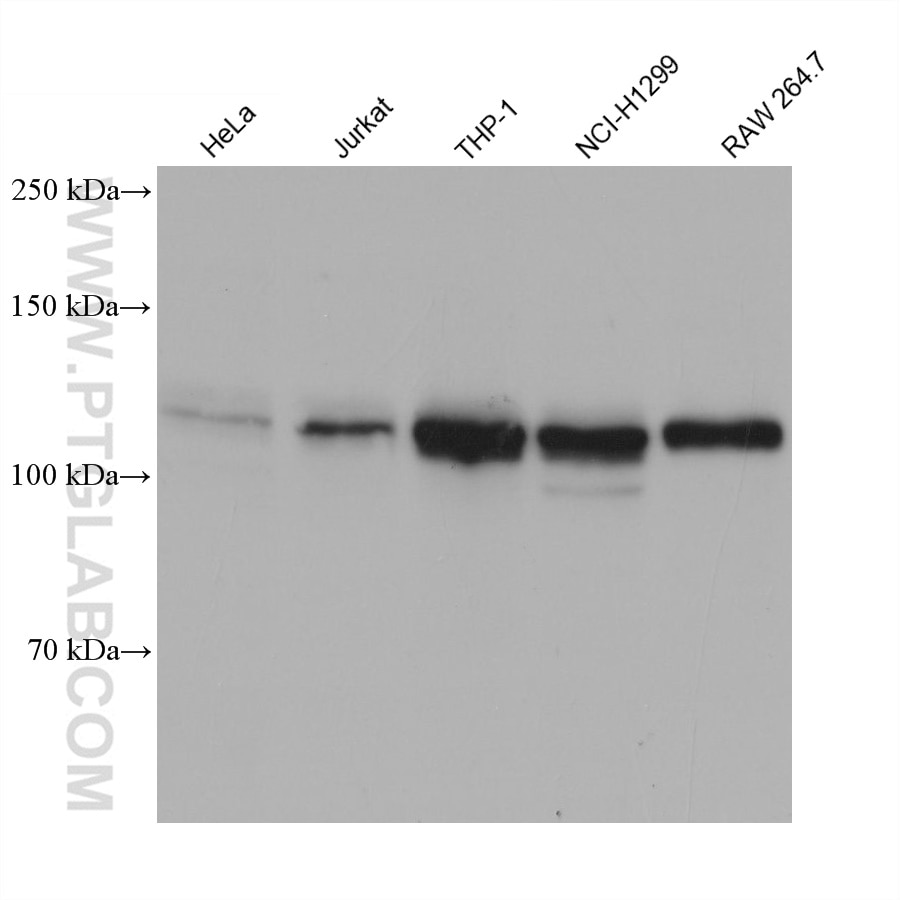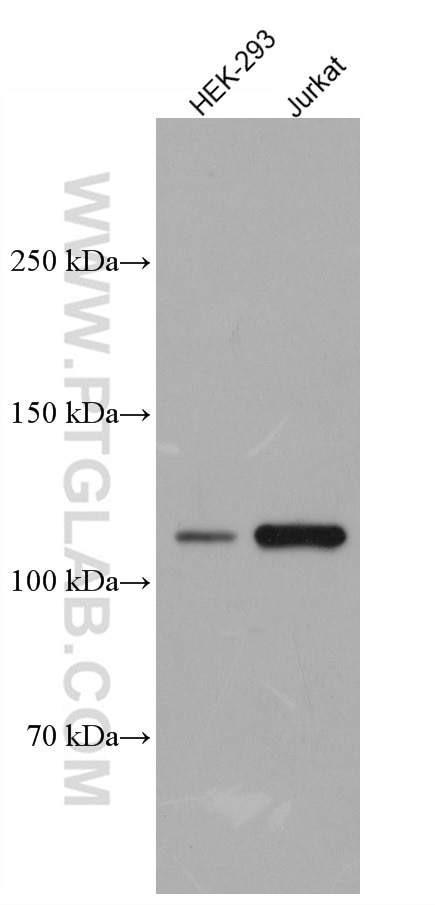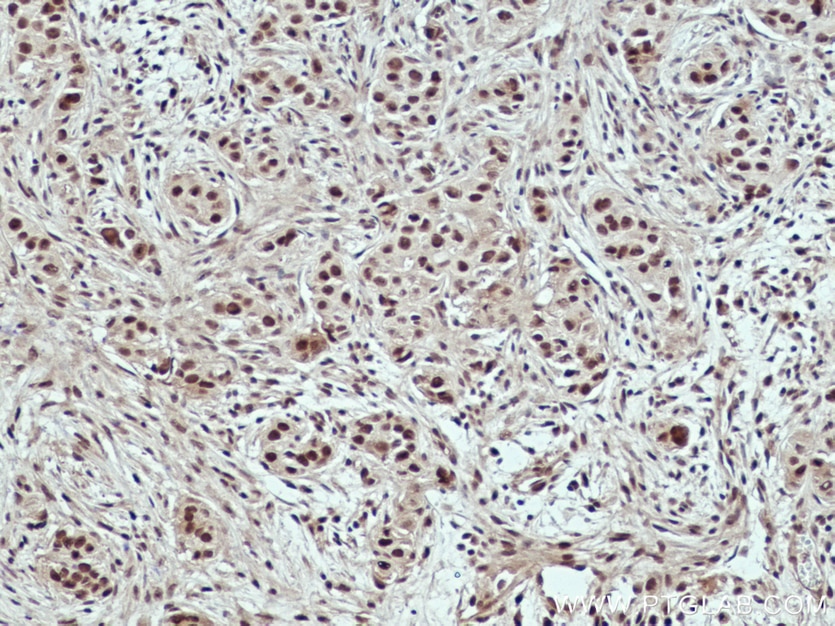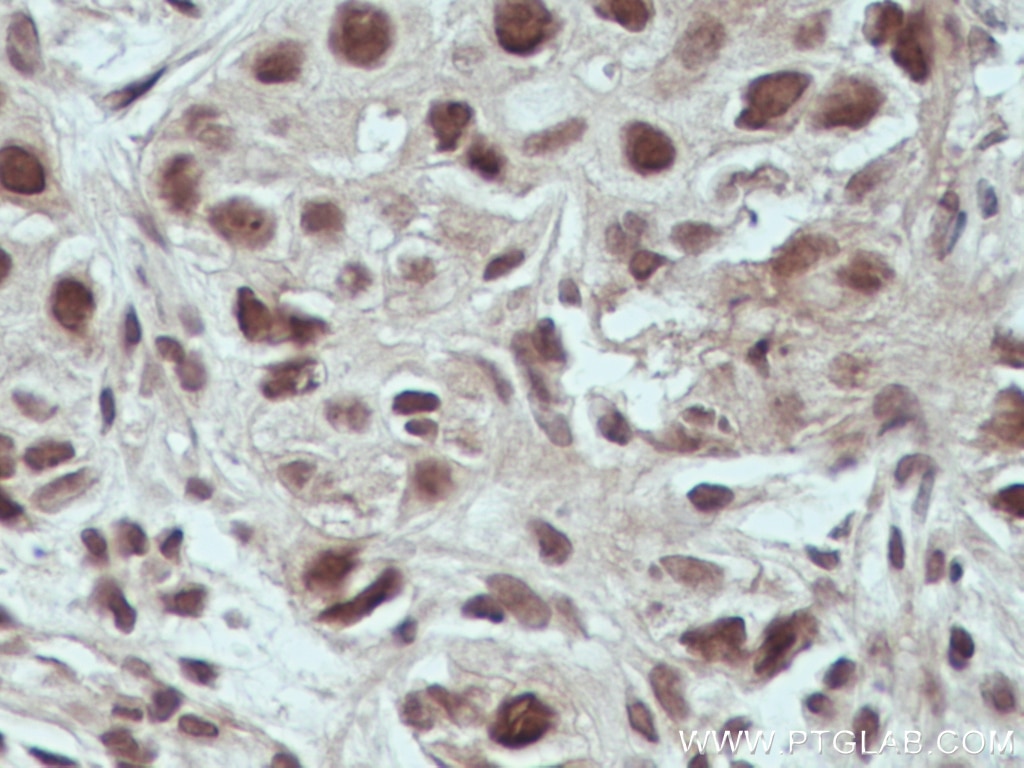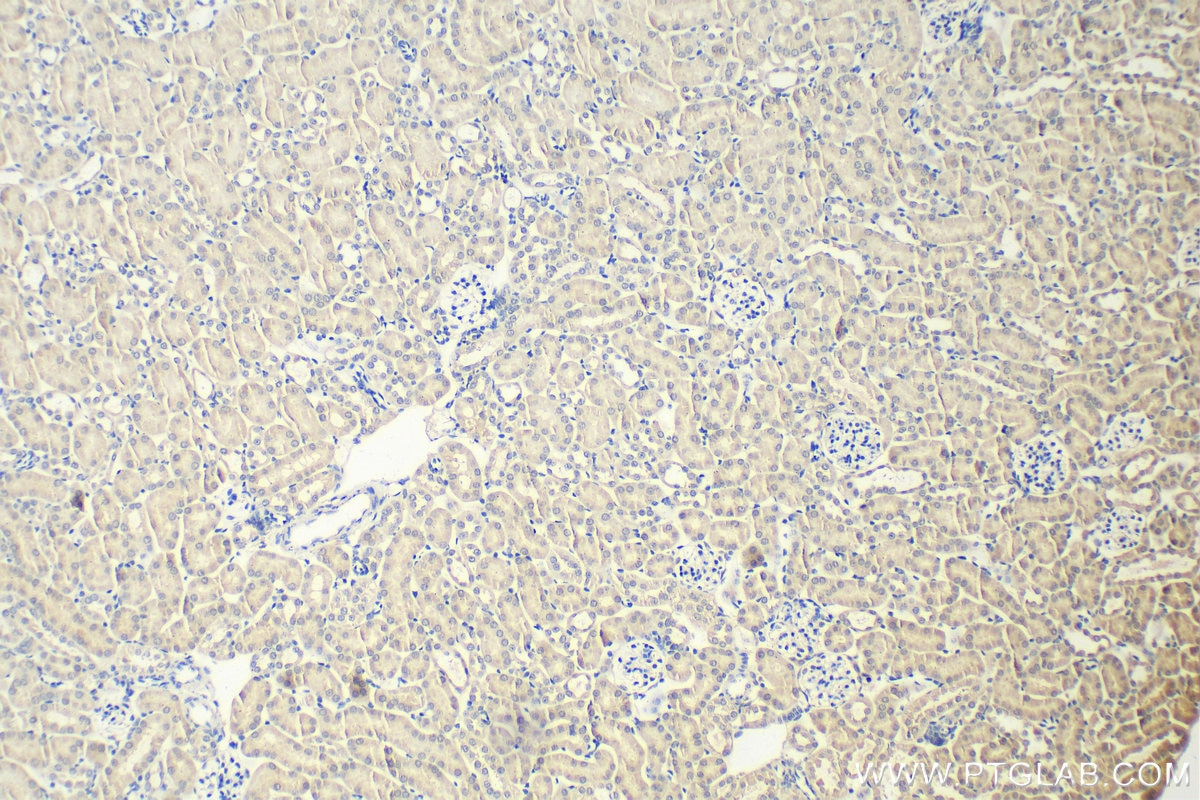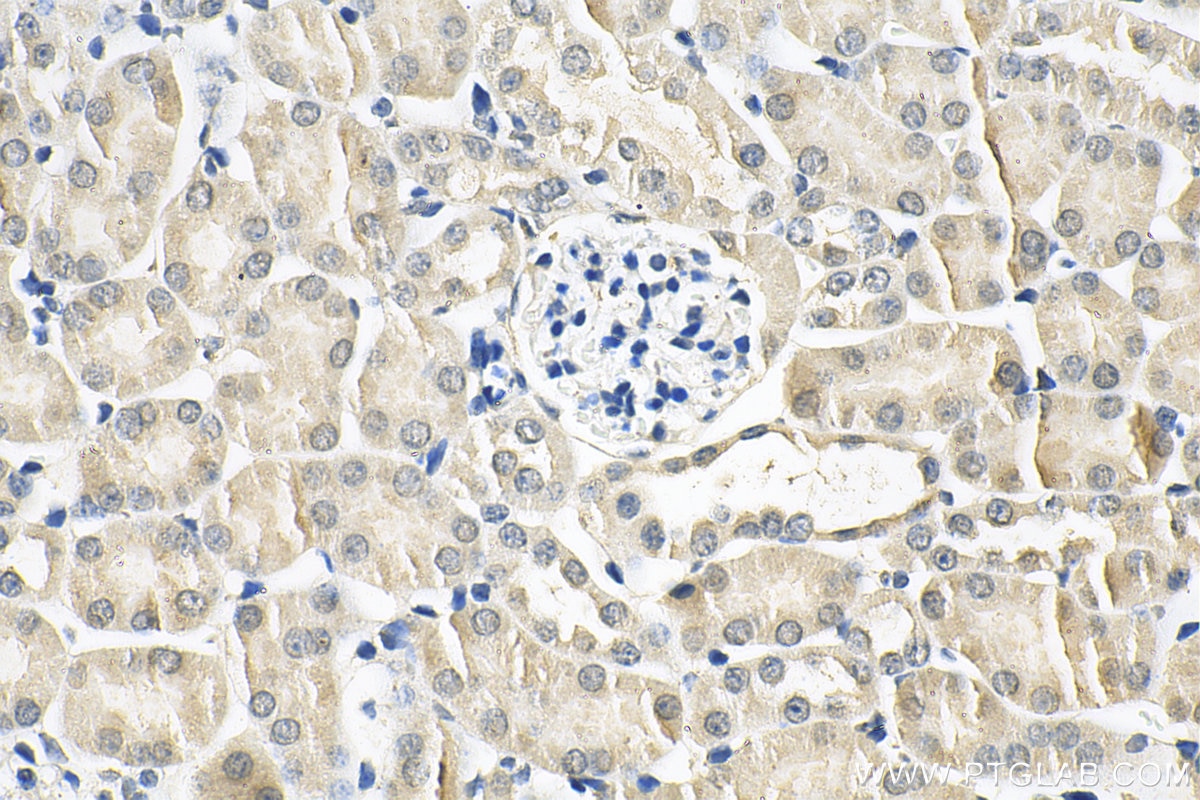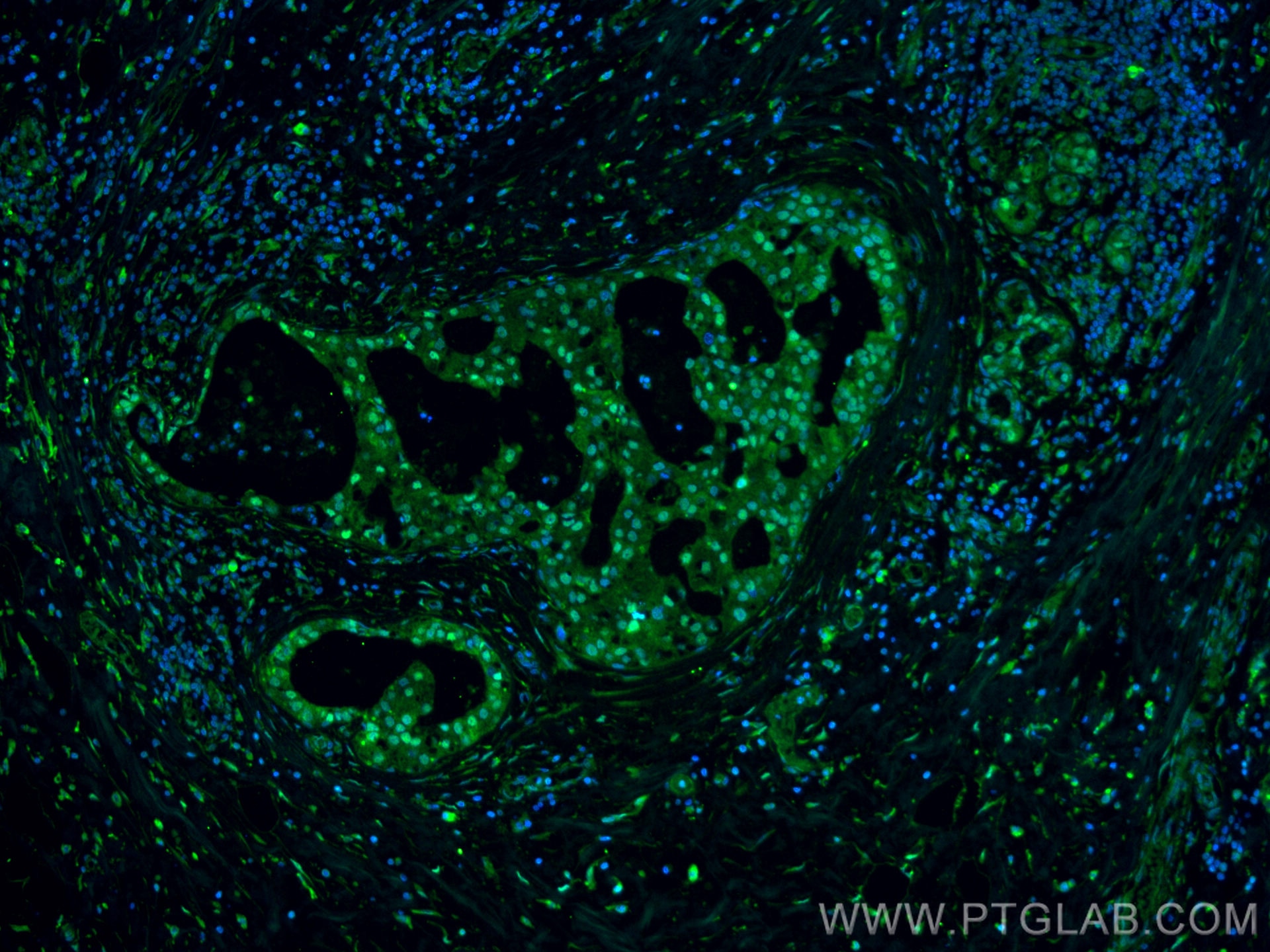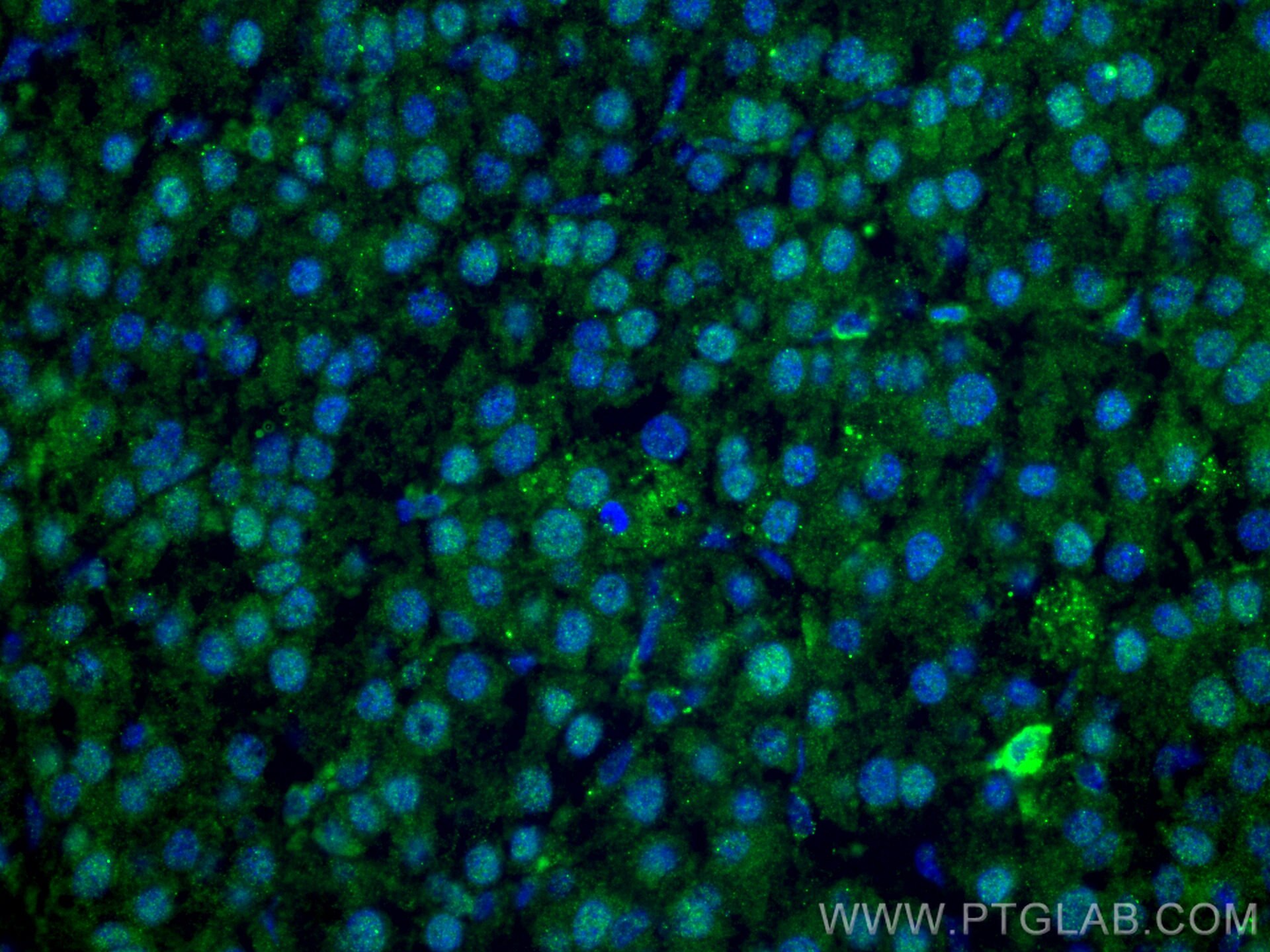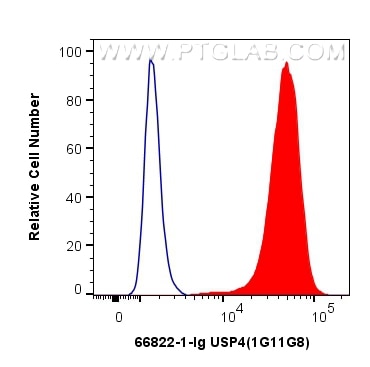Anticorps Monoclonal anti-USP4
USP4 Monoclonal Antibody for WB, IHC, IF-P, FC (Intra), ELISA
Hôte / Isotype
Mouse / IgG2b
Réactivité testée
Humain, souris
Applications
WB, IHC, IF-P, FC (Intra), IP, ELISA
Conjugaison
Non conjugué
CloneNo.
1G11G8
N° de cat : 66822-1-Ig
Synonymes
Galerie de données de validation
Applications testées
| Résultats positifs en WB | cellules HeLa, cellules HEK-293, cellules Jurkat, cellules NCI-H1299, cellules RAW 264.7, cellules THP-1 |
| Résultats positifs en IHC | tissu de cancer du sein humain, tissu rénal de souris il est suggéré de démasquer l'antigène avec un tampon de TE buffer pH 9.0; (*) À défaut, 'le démasquage de l'antigène peut être 'effectué avec un tampon citrate pH 6,0. |
| Résultats positifs en IF-P | tissu de cancer du sein humain, tissu de cancer du foie humain |
| Résultats positifs en FC (Intra) | cellules THP-1, |
Dilution recommandée
| Application | Dilution |
|---|---|
| Western Blot (WB) | WB : 1:1000-1:6000 |
| Immunohistochimie (IHC) | IHC : 1:100-1:300 |
| Immunofluorescence (IF)-P | IF-P : 1:50-1:500 |
| Flow Cytometry (FC) (INTRA) | FC (INTRA) : 0.40 ug per 10^6 cells in a 100 µl suspension |
| It is recommended that this reagent should be titrated in each testing system to obtain optimal results. | |
| Sample-dependent, check data in validation data gallery | |
Applications publiées
| WB | See 7 publications below |
| IHC | See 2 publications below |
| IF | See 2 publications below |
| IP | See 2 publications below |
Informations sur le produit
66822-1-Ig cible USP4 dans les applications de WB, IHC, IF-P, FC (Intra), IP, ELISA et montre une réactivité avec des échantillons Humain, souris
| Réactivité | Humain, souris |
| Réactivité citée | Humain, souris |
| Hôte / Isotype | Mouse / IgG2b |
| Clonalité | Monoclonal |
| Type | Anticorps |
| Immunogène | USP4 Protéine recombinante Ag28297 |
| Nom complet | ubiquitin specific peptidase 4 (proto-oncogene) |
| Masse moléculaire calculée | 963 aa, 109 kDa |
| Poids moléculaire observé | 109 kDa |
| Numéro d’acquisition GenBank | BC125131 |
| Symbole du gène | USP4 |
| Identification du gène (NCBI) | 7375 |
| Conjugaison | Non conjugué |
| Forme | Liquide |
| Méthode de purification | Purification par protéine A |
| Tampon de stockage | PBS with 0.02% sodium azide and 50% glycerol |
| Conditions de stockage | Stocker à -20°C. Stable pendant un an après l'expédition. L'aliquotage n'est pas nécessaire pour le stockage à -20oC Les 20ul contiennent 0,1% de BSA. |
Informations générales
USP4, also named as UNP and UNPH, belongs to the peptidase C19 family and USP4 subfamily. USP4 is a deubiquitinating enzyme that links to mitogen-activated protein kinase signaling, pre-mRNA splicing, and control of p53 stability (PMID: 26455393). USP4 has 3 isoforms with the molecular mass of 36, 104 and 109 kDa. Recently, it has been reported that USP4 is a critical factor in promoting lung cancer stemness and potentially useful lung cancer prognosis marker (PMID: 32549341).
Protocole
| Product Specific Protocols | |
|---|---|
| WB protocol for USP4 antibody 66822-1-Ig | Download protocol |
| IHC protocol for USP4 antibody 66822-1-Ig | Download protocol |
| IF protocol for USP4 antibody 66822-1-Ig | Download protocol |
| Standard Protocols | |
|---|---|
| Click here to view our Standard Protocols |
Publications
| Species | Application | Title |
|---|---|---|
Cell Death Dis USP4 promotes the proliferation, migration, and invasion of esophageal squamous cell carcinoma by targeting TAK1 | ||
Phytomedicine Vialinin A alleviates oxidative stress and neuronal injuries after ischaemic stroke by accelerating Keap1 degradation through inhibiting USP4-mediated deubiquitination | ||
bioRxiv The DNA helicase FANCJ (BRIP1) functions in Double Strand Break repair processing, but not crossover formation during Prophase I of meiosis in male mice | ||
PLoS One USP4 promotes the proliferation and glucose metabolism of gastric cancer cells by upregulating PKM2 | ||
Cell Death Dis USP4-mediated CENPF deubiquitylation regulated tumor metastasis in colorectal cancer | ||
Autophagy USP4 depletion-driven RAB7A ubiquitylation impairs autophagosome-lysosome fusion and aggravates periodontitis |
